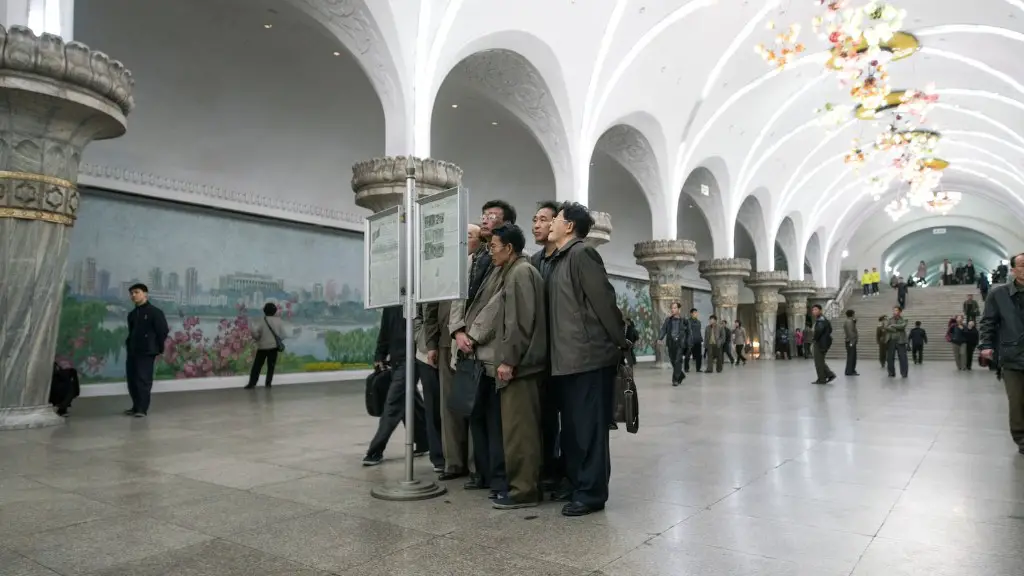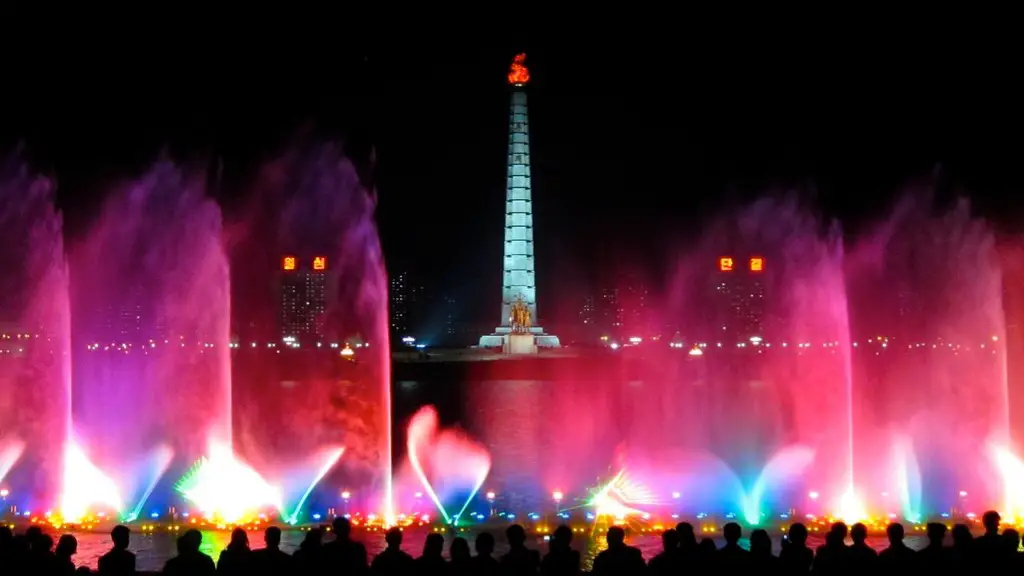Introduction to Is The US Technically Still At War With North Korea
The US has been at war with North Korea since the 1950s. This war has its roots in the Korean War, which was a conflict between North and South Korea that began in 1950. The US joined the war in support of South Korea, while China and the Soviet Union backed the North. Though the Korean War ended in 1953 with an armistice, no formal peace treaty was ever signed. This means that, technically, the US is still at war with North Korea despite the passage of more than six decades.
In the years since the end of the war, the US has been engaged in a tense standoff with North Korea over its nuclear weapons and ballistic missile programs. While diplomatic efforts have been ongoing, the US has continued to deploy troops, ships, and aircraft on the Korean Peninsula to prevent North Korea from launching an attack.
Alarm Over North Korea’s Attainments in Nuclear Weapons and Intercontinental Ballistic Missiles
Alarm has grown in recent years over North Korea’s advancements in nuclear weapons and intercontinental ballistic missiles (ICBMs). Under its leader Kim Jong Un, the country has tested both long-range and short-range missiles and developed a nuclear warhead small enough to fit atop one of its ICBMs.
US leaders have been warning that North Korea’s weapons could reach the United States and put millions of American lives at risk. In response, the US has increased economic sanctions and deployed a missile defense system to the region. These efforts have not been successful, however, and North Korea continues to expand its nuclear arsenal.
Continuing Tragedy of North Korea
Beyond the threat of nuclear weapons, the US has long had concerns about North Korea’s economic and human rights abuse. Under the Kim dynasty, North Korea has experienced desperate levels of poverty and official repression. The country has a dismal record on human rights, and has reportedly used starvation and public executions as tools of state control.
The US has made several attempts to address these issues. Past presidents have tried to negotiate with the North Korean regime, while the US Congress has approved limited humanitarian assistance to the country. These efforts have had little success, and much of the status quo remains in place today.
Role of China and Russia
China and Russia both continue to be strong allies of North Korea. Both countries have been accused of shielding North Korea from international pressure and providing the regime with diplomatic cover and economic assistance. China is North Korea’s primary trading partner and supplies it with fuel and other vital resources, while Russia serves as a political and military counterbalance in the region.
At the same time, both countries have been increasingly critical of North Korea’s nuclear weapons program and have called for a peaceful resolution of the conflict. Nevertheless, both countries have resisted significant sanctions on the regime and continue to provide North Korea with ample support.
Exploring Possibilities of Diplomatic Solutions
Despite the standoff between the US and North Korea, there have been some diplomatic breakthroughs in recent years. The US has been engaged in several rounds of negotiations with North Korea, most recently in 2018 and 2019. These meetings have a yielded some results, such as an agreement to dismantle a North Korean weapons testing site, but have yet to result in any substantive progress on nuclear disarmament.
In recent months, however, there have been signs of movement on this issue. US President Donald Trump met with North Korean leader Kim Jong Un in 2018 and 2019, and the two leaders have since exchanged letters and spoken via telephone. Diplomatic efforts have now been put on hold, however, due to the coronavirus pandemic.
Impact of COVID-19 on US-North Korea Relations
The outbreak of COVID-19 has had a significant impact on the US-North Korea relationship. North Korea has closed its borders and launched a crackdown on its people in an effort to stem the spread of the virus. At the same time, the country has accused the US and other countries of using the pandemic to sabotage its nuclear weapons program.
The US has responded by pushing for international cooperation to help North Korea combat the virus, but has also toughened economic sanctions on the regime. Despite the ongoing tensions, however, US officials continue to express openness to diplomacy and a willingness to negotiate with North Korea.
Analysis of US-North Korea Dynamics
It is clear that the US-North Korea relationship is complex and ever-evolving. It is also clear that North Korea has been actively working to expand its nuclear arsenal, despite international condemnation. At the same time, the US continues to press for a diplomatic resolution to the conflict, while also maintaining its military presence in the region.
What remains uncertain is whether there will be a meaningful diplomatic breakthrough in the near future. While there have been signs of progress, the relationship between the two countries remains fragile and the threat of war still looms in the background.
Evaluating Sanctions Against North Korea
The US has maintained a wide range of sanctions against North Korea, including economic measures, travel restrictions and asset freezes. The goal of these measures is to pressure the North Korean regime to abandon its nuclear weapons and ballistic missile programs.
While these measures have caused significant harm to the North Korean economy, there is disagreement over how effective they have been. Some argue that the US should ease sanctions in order to facilitate talks, while others contend that more pressure is needed in order to force North Korea to make meaningful concessions.
Exploring North Korea as a Nuclear Threat
It is clear that North Korea has developed a significant nuclear arsenal, including a wide range of ballistic missiles and warheads. Despite this, there is still disagreement over how close North Korea is to being able to launch a nuclear attack on the US and its allies.
Some experts believe that North Korea has the capability to use its weapons, while others contend that the country is not yet able to deliver on such a threat. Additionally, there is disagreement over what the US response should be if North Korea does acquire the ability to launch a nuclear attack.
The Role of the United Nations Security Council
The United Nations Security Council has been actively engaged in the US-North Korea conflict for decades. The Council has passed several resolutions calling on North Korea to abandon its nuclear weapons and ballistic missile programs, as well as imposing sanctions on the regime.
At the same time, the Council has opposed any unilateral military action by the US or its allies and has called on all sides to pursue diplomacy and dialogue. While the Security Council has taken a strong stance against North Korea, it has limited ability to enforce its decisions and many analysts question its effectiveness in this regard.
Online Engagement and Political Mobilisation
In recent years, there has been an increase in online engagement and political mobilisation concerning the US-North Korean conflict. Groups such as the Friends of Korean Unification have organised online campaigns to raise awareness of the issue and call for a peaceful resolution.
Other organisations, such as the Korea Peace Network, have organised rallies, conducted research, and produced educational materials to help spread their message. Additionally, there has been a surge in media coverage of the conflict, which has helped to keep the issue in the public eye.
Conclusion: Constructive Strategies for Resolving the US-North Korean Conflict
The US-North Korean conflict remains one of the most stubborn and intractable issues in international diplomacy. As both sides continue to deploy military forces in the region and the threat of war remains ever-present, it is clear that there is no easy solution to the crisis.
Constructive strategies that involve economic, diplomatic, and political measures are urgently needed in order to bring the conflict to an end. These strategies should focus on creating incentives for both sides to move towards a peaceful resolution and should involve meaningful dialogue and multilateral diplomacy. Ultimately, only through such measures can the US-North Korean conflict be resolved.



